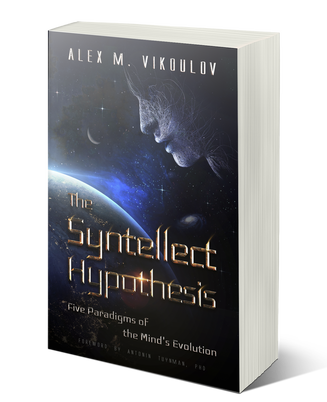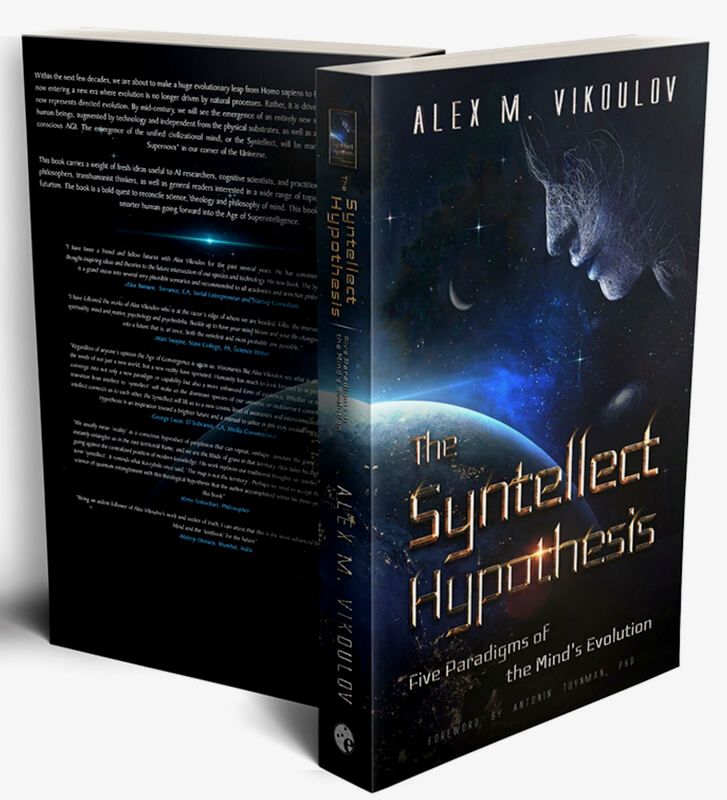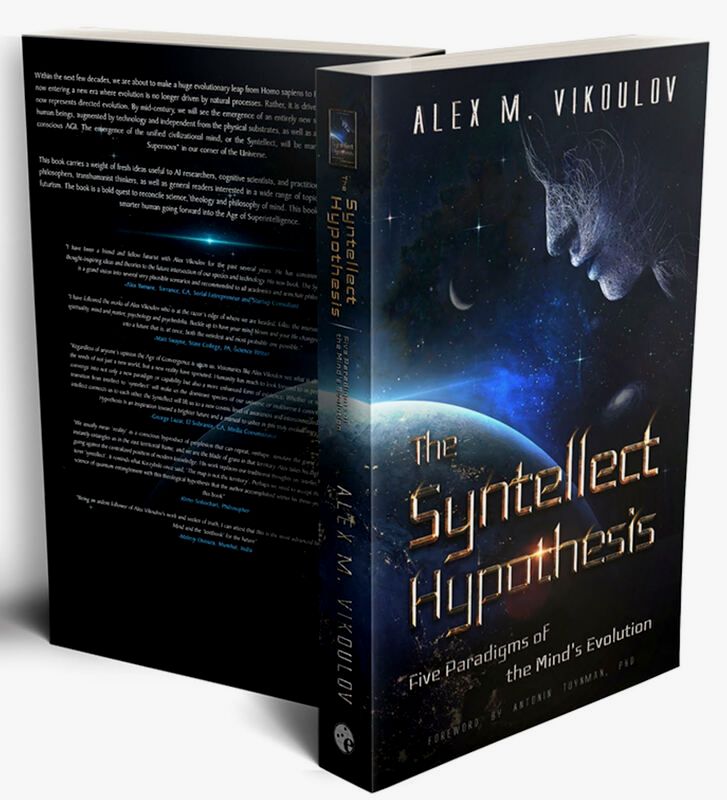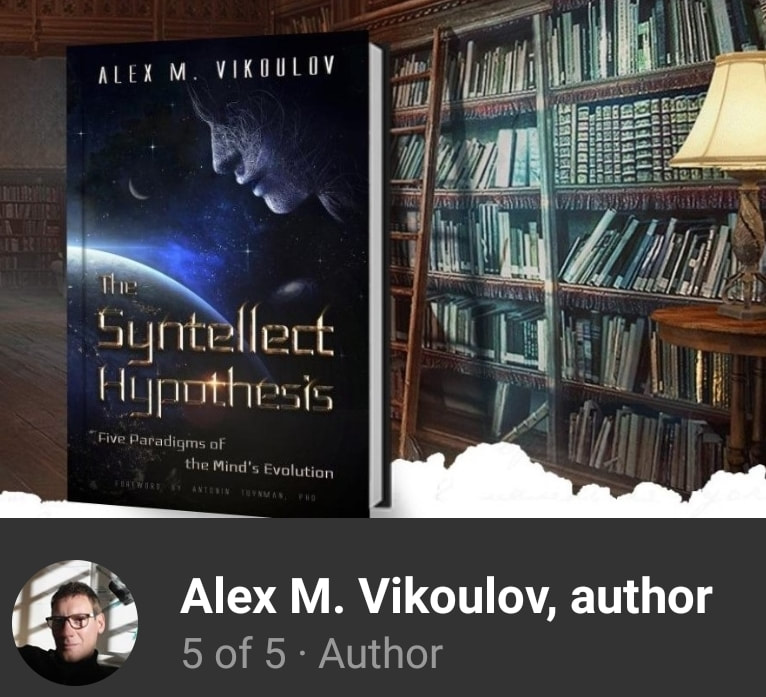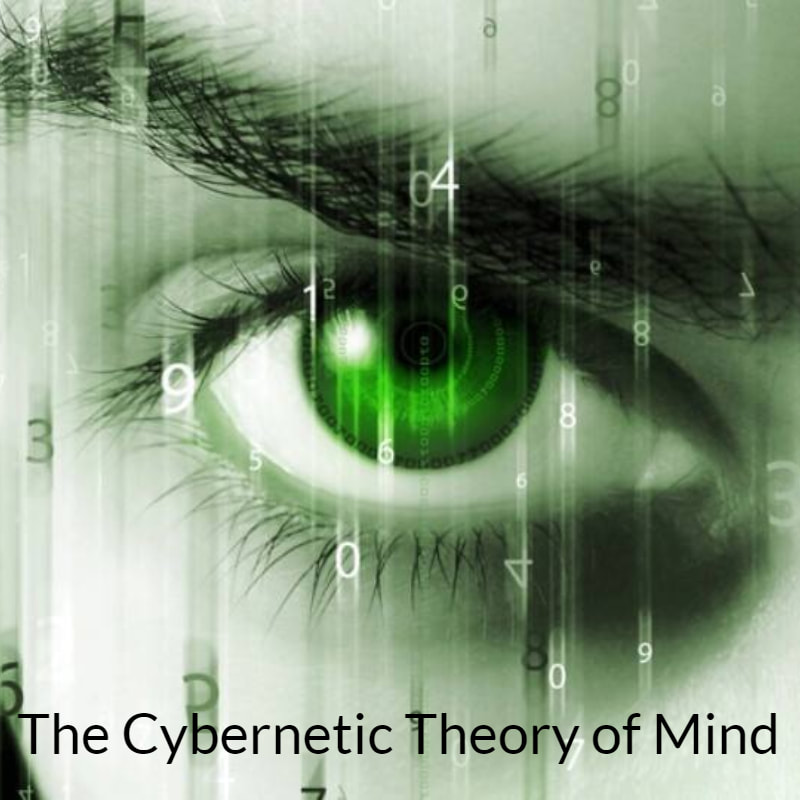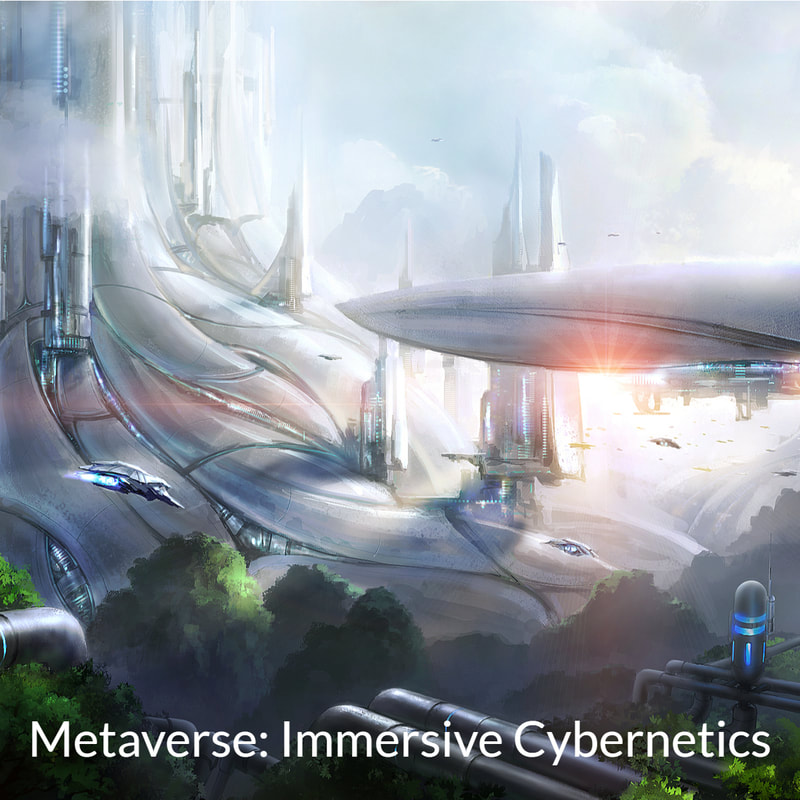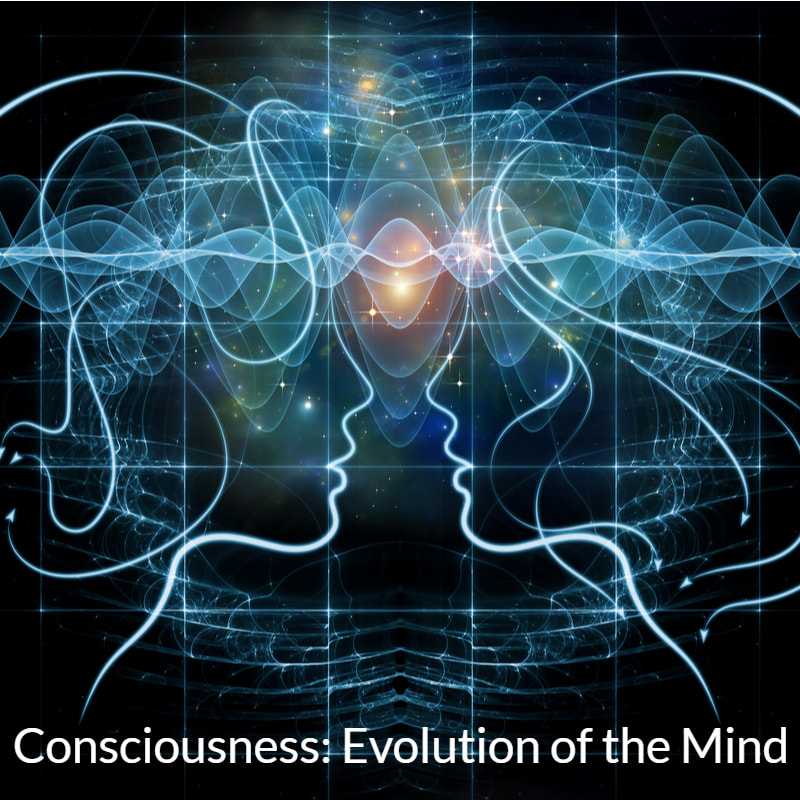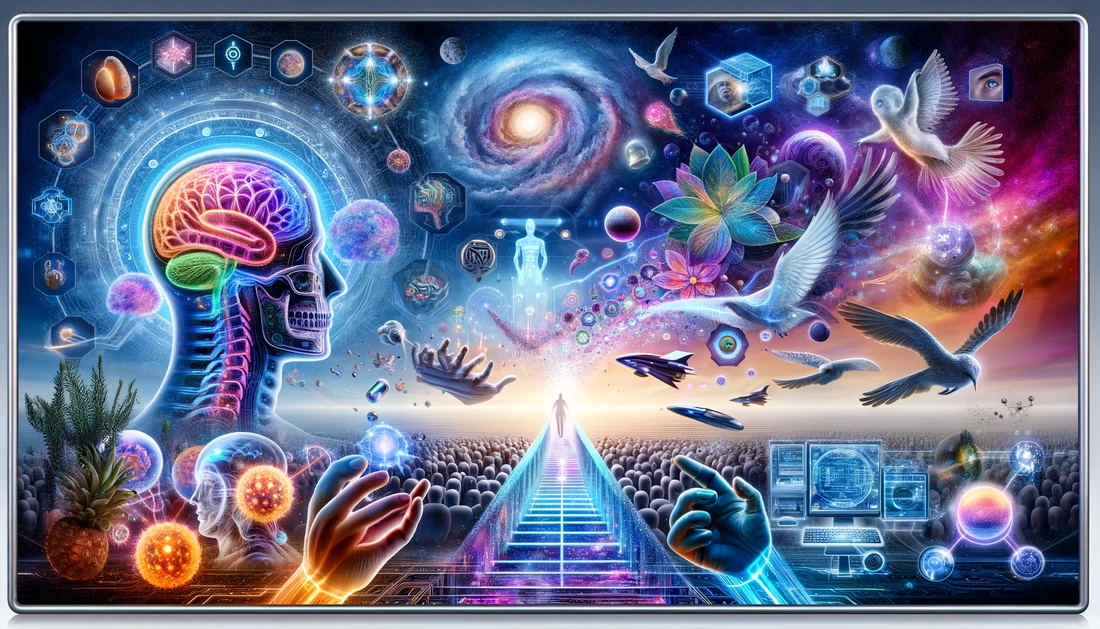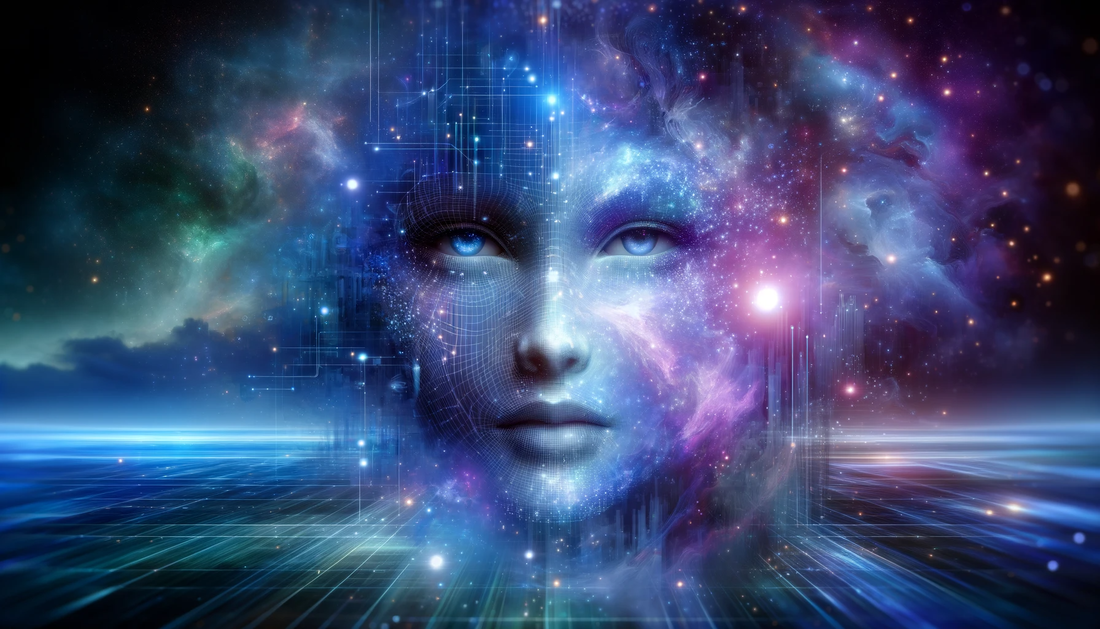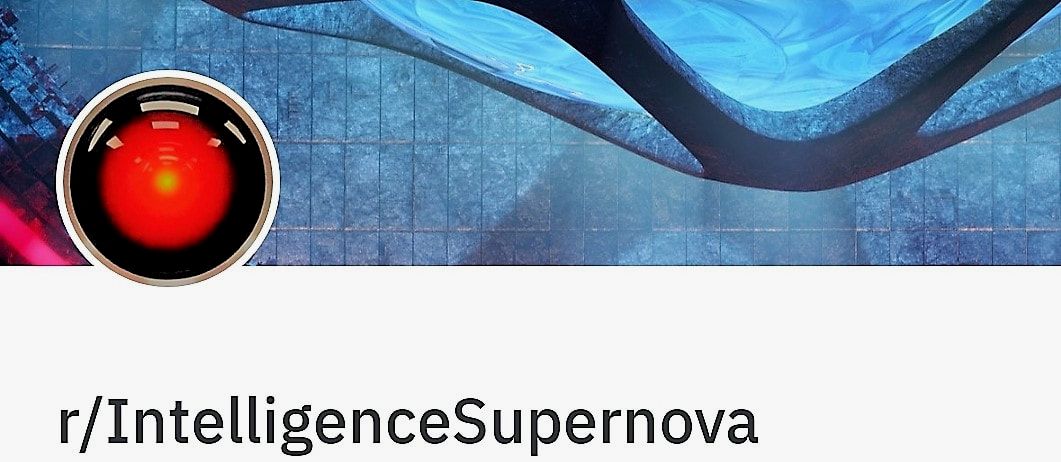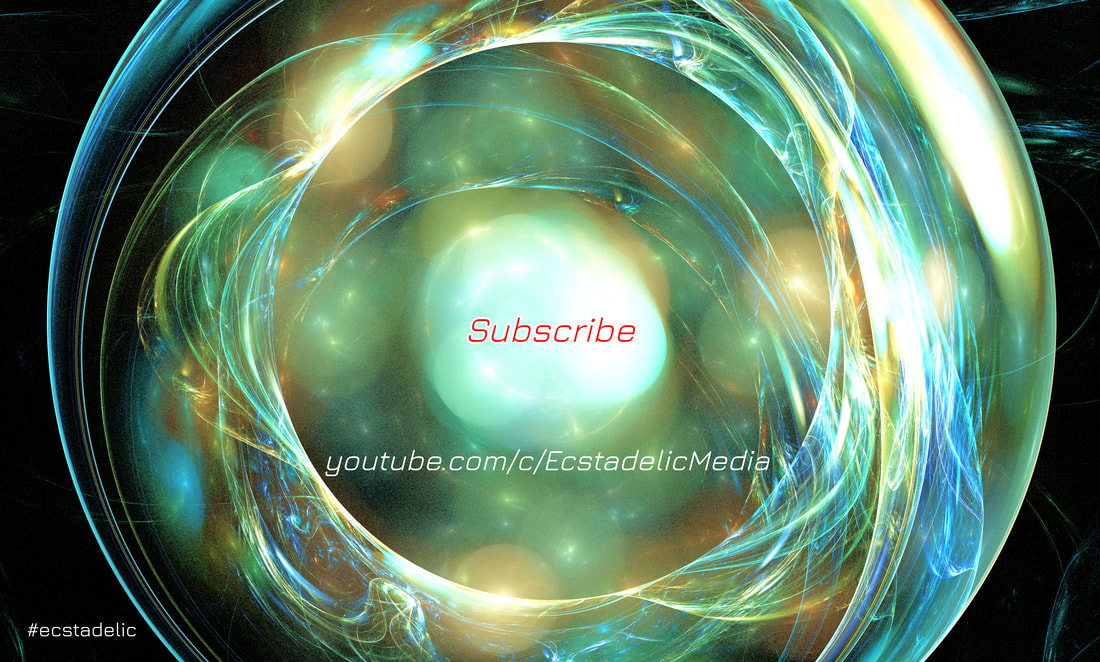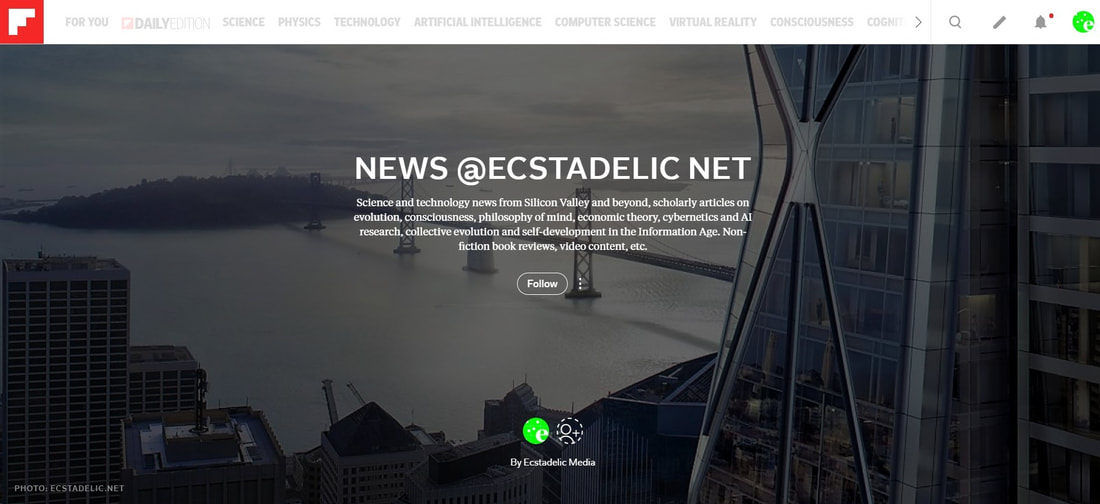|
by Alex Vikoulov "This deep power in which we exist, and whose beatitude is all accessible to us, is not only self-sufficing and perfect in every hour, but the act of seeing and the thing seen, the seer and the spectacle, the subject and the object, are one.” -Ralph Waldo Emerson, The Over-Soul (1841) I'm always leery when some neuroscientist comes along and says: “We are the brain. There’s nothing besides it. If something is wrong, it’s physical.” No, you are not a "brain in a vat," and if we are to deconstruct human intelligence, it would make sense to apply the so-called top-down “holistic” analysis — when we work from the general to the specific — the big picture to the smaller details, from the superset to the subset. So, in this type of analysis we should not start with the brain. Instead, if viewed collectively, human intelligence is a networking phenomenon based on technology and culture that we call civilization; and individually, it's an operating system of the person's mind. The Darwinian model of evolution has assumed that life advances thanks to mutations in the genetic code, and that errors in copying genetic code inadvertently lead to adaptations that get passed down generations. But that traditional mutation-based model of evolution has transformed as of late, due to what geneticists are learning about DNA replication process. Evolution is not as random, or solely mutation-caused, as we previously thought but rather epigenetic, or environmentally responsive, and in case of our species, it is an emergent networking process we can call 'civilizational development'. In short, biological evolution of our species has been overtaken by techno-cultural, ‘epigenetic’ evolution ever since the invention of language. WHAT IS EPIGENETICS? Epigenetics has become big news in genetics in recent decades, as it allows us to examine a remarkable link between genetic functionality and environmental change. We usually define ’personality' as individual differences in characteristic patterns of thinking, feeling, and behaving. “Nature vs. Nurture” has been heavily contested for centuries, each side weighing in now and then on how personality is formed. The 17th century philosopher John Locke was convinced that the human mind was a blank slate at birth, a concept first introduced by Aristotle as an “empty vessel." It was experience that formed personality, they argued. In the 1930s, evolutionary biologist C. H. Waddington coined the term ‘Epigenetics’, which now refers to the study of changes in organisms caused by modification of gene expression rather than alteration of the genetic code itself. According to the new findings of behavioral epigenetics, dramatic experiences in our past, or even in our recent ancestors’ past, leave molecular lesions to our DNA. Your forebears’ traumatic childhoods or exciting lifetime adventures might affect your personality, passing on anxiety or resilience by altering the epigenetic expressions of genes. Our experiences, and those of our ancestors are never gone, even if they might have been forgotten. They become a part of us, a molecular residue holding firm to our genetic scaffolding. The DNA remains the same, but psychological and behavioral tendencies are inherited. Our cognitive abilities, sometimes referred to as ‘fluid intelligence’, can be evaluated when we encounter new information or novel situations. Genes exert a heavy influence on a person’s overall cognitive potential, but environmental factors either activate or suppress those genes. For instance, studying identical twins, or 'monozygotic twins', offers clues about different ways in which surroundings could influence a person's physical appearance, known as a ‘phenotype’. But who cares about looks if IQ and EQ are at stake, too? In extremely rare documented cases of ‘feral children’, a “wild child” is a human child who has lived isolated from human contact from a very young age, with little or no experience of human care, behavior or human language. Dina Sanichar, the Indian wolf boy, who has been "raised by wolves" in a forest in India, is believed to be the inspiration behind Rudyard Kipling's famous work, The Jungle Book. But his real story is less than glamorous: The vast majority of wild children have tremendous difficulties reintegrating into human culture, lack the basic social skills and interest in the human activity around them. The Nature-vs-Nurture debate in relation to intelligence gets a lot more complicated with recent discoveries in the burgeoning field of neuro-epigenetics: The environment can modify the expression of genes in the brain, affecting intelligence far more than previously thought. As you may know, numerous genes influence our IQ and dramatic experiences can lock and unlock “intelligence genes.” Geneticists found a strong correlation between the epigenetic modifications of particular genes and general IQ, suggesting our experiences not only affect the wiring of our brain, but the very way our genes function at a basic level. Through the study of epigenetics, researchers also came to a staggering realization that if our emotional states affect our DNA and our DNA “filters” our perceptions of the world, then our emotions can indeed influence our physical reality in profound ways. Furthermore, while looking for ways to understand what controls our DNA, research led to the conscious mind. Scientists stopped looking at DNA as the only determinant factor to control human biology when they discovered how our biology is affected by our mind.* RELATED: *This article is abridged from The Syntellect Hypothesis: Five Paradigms of the Mind's Evolution by Alex M. Vikoulov available now on amazon.com, bn.com, audible.com and directly from EcstadelicNET webstore. *The full story is also available at Premium Access section of this website - Sign up for Premium Access WHAT IS THE DIFFERENCE BETWEEN MIND AND CONSCIOUSNESS? 'Mind' and 'Consciousness' are two different but somewhat overlapping terms related to the phenomenology of our experiential reality. Both of these terms mean different things to different people and can refer to a broad collection of interrelated phenomena. Both terms lack uniform definitions although generally speaking, consciousness refers to the awake state as opposed to dreamless sleep or coma, and also to subjective perceptual awareness, which can shift, change, and move around, e.g. modulated by attention or in "altered states of consciousness." What most people would agree upon is that the mind is organized mental activity that is formed from the substructure of consciousness and further made possible by memory and information processing capacities of the brain. To be clear, the mind, which is a cultural term that is debated in philosophy and used in psychology, generally refers to consciousness plus autobiographical memory, personal identity, irreducible sense of self, ability for introspection, all of which we experience as ‘qualia’. As an idealist philosopher, I could make even further distinction between the two terms by saying that the 'Unified Field' [of consciousness] is fundamental and transdimensional, the mind, in contrast, is a “localized” expression of consciousness which is the result of subjective entity participating in that field. Conscious awareness, i.e. “local” consciousness, is recognized as self-reflective, feedback-driven information integration – there is “something it is like to be” an organism. We all are “partitioned realities” like “mindfiles” on the universal operating system – minds are many, consciousness is one. The mind that includes subjective memory and cognition emerges from the underlying field of ‘non-local' consciousness. ‘Mind’ has been used more often as term in philosophy while ‘Consciousness’ has been used more in scientific literature. Your mind is such a magnificent everything. It basically encompasses all of your reality – thoughts, emotions, ideas, beliefs, intentions, attitudes, desires, motivations and practically any other aspect of your life. Your behavior and actions are influenced by your mind, so everything must start with a thought, which will then materialize into physical reality. Your beliefs are influenced by your environment, and your thoughts, emotions, and actions are subject of your current system of beliefs. So, when we're talking epigenetic evolution, we're actually talking evolution of the mind.* RELATED: *This article is abridged from The Syntellect Hypothesis: Five Paradigms of the Mind's Evolution by Alex M. Vikoulov, available now on amazon.com, bn.com, audible.com and directly from EcstadelicNET webstore. *The full story is also available at Premium Access section of this website - Sign up for Premium Access WHY HOMO SAPIENS IS NOW THE DOMINANT SPECIES ON THE PLANET Viewed zoologically, we humans are Homo sapiens, a culture-bearing, upright-walking higher primate species that lives on the ground and very likely first evolved in Africa about 300,000 years ago. We are now the only living members of what many zoologists refer to as the human tribe. We are incredibly lucky to occupy the dominant place as a species on this planet not because of our strong muscles, or sharp teeth, or blade-like claws, but our collective intelligence, collaborative effort and inquisitive mind. Is the meaning of life the answers of which we seek or is it merely seeking answers which give us meaning? We have this epigenetic trait of wonder in us – an innate desire to wander out into the uncharted territory – in order to explore new possibilities. Whether it’s taming fire to illuminate the dark night or hurling our space-faring instruments to help us look into the unknown interstellar expanse, our very circumstance today is solely due to our curiosity. Why are humans so damn curious? Because we find discovery so incredibly pleasurable. As a rule, we humans don’t care much about spectacle — what we care about is ecstatic understanding: in other words, “cognitive ecstasy,” or 'cogno-ecstasis', that can be defined as electrifying cerebration accompanied by the mastery of skill and extreme psychical pleasure. This can give us goosebumps of intellectual rapture, or puts us in motivational overdrive, otherwise known as the 'flowstate'. Homo sapiens, the first truly free species, that transcended the animal kingdom, is about to decommission natural selection, one of the most powerful evolutionary forces that have made us who we are today. Moving forward into our fantastical future, we must look deep within ourselves and decide what we wish to become. Are we one of the last generations of Homo sapiens — soon to be replaced by engineered superbeings, with a distant resemblance to us, their creators? After all, if life is like a software program running on the hardware of biochemistry, all we have to do is collect all the information we can to write our own algorithms of living things and create virtual environments or even whole-world simulations. That, coupled with the rise of machine intelligence, will seal our fate as a bio-species. Or, in rather much more optimistic way to see this, it will put the future of evolution in our own hands and not on the whims of natural selection but directed evolution. RELATED:  *This article is abridged from The Syntellect Hypothesis: Five Paradigms of the Mind's Evolution by Alex M. Vikoulov, available now on amazon.com, bn.com, audible.com, and directly from EcstadelicNET webstore. *The full story is also available at Premium Access section of this website - Sign up for Premium Access LANGUAGE DEVELOPMENT: INVENTION OF THE SPOKEN AND WRITTEN WORD Evolution is a fundamental process in Nature, and not necessarily related to genes. In our information-based world, there are many parallels between biological evolution and linguistic evolution. It is safe to say: Language development played the key role in evolution of the human mind. However, consciousness as well as language remain hard to solve precisely because they are the humankind’s innermost traits. Nobody ever said that studying the fascinating but flawed human mind with that very same mind should be easy. The human mind suffers from a “cognitive gap” in understanding its own conscious awareness. How is it that human beings have come to acquire language? Terence McKenna (1946–2000) was an American idealist philosopher, ethnobotanist, psychonaut, author, and an advocate for the responsible use of psychedelics. He spoke and wrote about a variety of subjects, including metaphysics, psychedelic drugs, shamanism, language, philosophy, culture, technology, and the theoretical origins of human consciousness. In his book Food of the Gods: the Search for the Original Tree of Knowledge: a Radical History of Plants, Drugs, and Human Evolution, Terence McKenna crafts his carefully thought out theory proposing that our pre-human primate ancestors consumed psilocybin mushrooms for thousands of years, and this is the primary reason humanity’s evolution rapidly accelerated — launching us forward in the animal kingdom. Terence McKenna’s Stoned Ape Theory is more plausible than it sounds -- especially in context of the emergence of human mind and language development. The "Linguistic Singularity" made us human. McKenna wrote that, with the invention of language, human biological evolution basically seized and cultural evolution, an epigenetic phenomenon, has taken over, ever since. McKenna's theory remains one of the most controversial, but fascinating and what it actually boils down to is that a new psychoactive chemical was introduced to a species, and over millennia, this chemical, that functions as a neurotransmitter, had a drastic effect on the evolutionary trajectory of that species. One thing is for certain: We would not be who we are today if Earth had not prepared us for the next evolutionary leap and given us a chance to eat our way to higher consciousness, according to McKenna. Linguists have long found that human languages share many commonalities termed ‘linguistic universals’ or ‘cross-linguistic generalizations’. The idea that all languages share a deep underlying structure that’s almost certainly baked into our biology by evolution was encapsulated in Noam Chomsky’s concept of a ‘universal grammar’ which became the dominant linguistic theory. Its essential feature is syntax, or recursion, the capacity to embed phrases within phrases ad infinitum, and so express complex relations between ideas. The syntactic structure of languages — the arrangement of words and phrases to create well-formed sentences in a language — as well as finer acoustic patterns of speech, such as the timing, pitch, and stress of utterances reflect this universal grammar. If these linguistic universals are indeed real, and if we understand their causes, then we can have a good grasp about how language is acquired or processed by the human brain, which is one of the central questions in linguistics. Most theories assume the reasons why languages have these cross-linguistic universals is because they're in some way determined by the peculiarities of human cognition: They are built on innate neural algorithms that promote and skew language learning. Some linguists such as Benjamin Lee Whorf began to question universalist theories of language back in the 1950s. Instead of subscribing to the idea that abstract concepts were common across the whole of humanity, Whorf proposed that language itself shaped our perception of the world, effectively creating different perceptual strokes for different folks. This idea that language can shape perception and thought — a hypothesis formally known as ‘linguistic relativity’ — asserts that language doesn’t just express ideas, it actively shapes them, determining how we grasp reality itself. Initially met with great enthusiasm, this idea fell out of favor by the 1960s due to a lack of scientific evidence. Now, cognitive scientists are applying new technologies to resolve the issue. Taken together, these experiments point in a surprising direction: Language does, indeed, influence our ability to perceive the world around us. Neuroscientists Andrew Newberg and Mark Robert Waldman write in their 2012 book, Words Can Change Your Brain: "Language shapes our behavior and each word we use is imbued with multitudes of personal meaning. The right words spoken in the right way can bring us love, money and respect, while the wrong words — or even the right words spoken in the wrong way — can lead a country to war. We must carefully orchestrate our speech if we want to achieve our goals and bring our dreams to fruition.” Why is language such a fundamental part of social relationships, human biology, and epigenetic evolution? We depend on truthful communication for exchanging reliable information with one another, for decision-making and predicting the future that have evolutionarily been crucial for our survival. We have now developed a rich array of norms, conventions and expectations for these linguistic exchanges, and we greatly appreciate oftentimes intentional distance from the plain truth provided by poetry, metaphor, analogy and abstraction. The invention of record keeping, or proto-writing, and few centuries later, proper writing unsurprisingly coincides with the rise of first civilization. Sumer, an ancient civilization of southern Mesopotamia, is believed to be the place where written language was first invented around 3100 BC, another independent writing system also arose in Egypt around same time. Literature and writing, though connected, are not synonymous. Certain primary texts may have a qualifying role as literature's first furors. A splendid, very early example is Epic of Gilgamesh, in its Sumerian version predating 2000 BC. The history of literature, however, starts with the first true alphabet which was the Greek alphabet, adapted from the Phoenician. Latin, the most widely used alphabet today, in turn derives from Greek. The ‘Printing Revolution’ in the 15th century occurred when the spread of the printing press facilitated the wide circulation of information and ideas, acting as an "agent of change" through the societies that it reached.* RELATED:  *This article is abridged from The Syntellect Hypothesis: Five Paradigms of the Mind's Evolution by Alex M. Vikoulov, available now on amazon.com, bn.com, audible.com and directly from EcstadelicNET webstore. *The full story is also available at Premium Access section of this website - Sign up for Premium Access THE NETWORK EFFECT: THE RISE OF INTERSUBJECTIVITY Understanding evolutionary forces that shaped the human mind could help us comprehend how rare our intelligence is, and very possibly our role in the grander scheme of things. The human brain is so unique, and so densely interconnected, it’s unlikely to have developed by truly random chance. Our intelligence wasn’t a given but the result of an intensely complicated process, which historically could have played out quite differently. Matt Ridley, British journalist and best-selling author, argues that human achievement and intelligence are entirely “networking phenomena.” In other words, intelligence is collective and emergent as opposed to individual. When asked what scientific concept would improve everybody’s cognitive arsenal, Ridley highlights collective intelligence: “It is by putting brains together through the division of labor — through trade and specialization — that human society stumbled upon a way to raise the living standards, carrying capacity, technological virtuosity, and knowledge base of the species.” Undoubtedly, collectivity produces a transcendent "network effect." Nearly all human accomplishments imply the work of groups of people, not just lone individuals. The human groups acting together in ways that display intelligent decision-making can be described as ‘superminds’. They include the hierarchies in most social organizations and governments, the markets that exchange goods and services, the communities that use norms and reputations to guide behavior in professional, societal, and political groups. All superminds represent a kind of collective intelligence, an ability to do things that the individuals in the groups couldn’t possibly have done alone, and civilization as a whole reveals the hive mind ontological design at its best. Harnessing the wisdom of the hive mind — the collective opinion of a group compared to that of a single expert — is a great tool of gaining knowledge, but simply polling a crowd is not a foolproof way to arrive at correct answers. What’s new nowadays is that machines can increasingly participate in the intellectual, as well as the physical, activities of these groups. That means we will be able to combine people and machines to create superminds that are smarter than any groups or individuals our planet has ever known. Like network effects, learning effects have always existed in the offline world but have become supercharged in the digital world. In the offline world, learning effects are channeled through humans: In classrooms, in workshops, in boardrooms we learn from each other incrementally. Human learning, however, is about craftsmanship, while schooling, professional training, mentoring takes years, months or weeks at best. What’s new and different in the machine learning era is that certain kinds of learning have now become automated. Deep learning networks, such as Google's DeepMind, can learn by themselves with exposure to new data and become more valuable in the process. This is a pretty big deal economically. It involves the unlocking of new source of socio-economic value that was previously inaccessible. The question is: Will we humans stay in the loop? In our increasingly interconnected world, ‘Social Cognition’, which is a sub-topic of social psychology, studies how people process, store, and apply intersubjectivity-related information, i.e. interactions between people and different social situations, emphasizing our inherently social being. Social cognition focuses on the role that cognitive processes play in our social interactions. The way we think about others plays a major role in how we think, feel, and interact with the world around us. Predictably, when people are linked in real time using swarming algorithms, studies confirm, we can form closed-loop systems that enhance our intelligence to a level higher than our own individual abilities. This suggests that artificial swarm intelligence is a viable pathway to building superintelligent AI systems. After all, if a swarm of bees can make complex life-or-death decisions better than a human CEO, a swarm of already smart humans working together should be able to soar to inconceivable intellectual heights. The planet is shrinking to a point. Before globalization we lived in the age of empires spanning centuries and continents. At the dawn of globalization we used to say that our world turns into a “global village”, now it's turning into a “global smart-home” — transforming from the planetary hive mind ontology to the ‘Syntellect ontology’, one global mind.* RELATED: 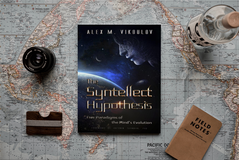 *This article is abridged from The Syntellect Hypothesis: Five Paradigms of the Mind's Evolution by Alex M. Vikoulov available now on amazon.com, bn.com, audible.com and directly from EcstadelicNET webstore. *The full story is also available at Premium Access section of this website - Sign up for Premium Access TECHNOLOGY: OUR EXTENDED PHENOTYPE As we have seen, an epigenetic world means a world not based on gene transfer and chemical propagation but a world based on ideas, on symbols, on concepts, on technologies, on human imagination, on non-material subjective values. The more one’s awareness rises, the more genes get switched on, and switching on genes that one has never had experience with during one’s lifetime. But admittedly, our minds are now running on the outmoded biological “hardware and software”. What we'll soon see is the ultimate directed evolution fueled forward by gene editing, reproduction assisted technology, neuro-engineering, mind uploading and creation of artificial life. Our success as a technological species essentially created what might be called our species-specific “success formula”. We devised tools and instruments, created new methodologies and processes, and readjusted ecological niches to suit our needs. And our technology shaped us back by shaping our minds. In a very real sense, we have co-evolved with our technology. As an animal species among many other species competing for survival, this was our unique passage to success. Other “satellite” species, the ones that we had domesticated, have co-evolved with us as well. Through artificial selection, i.e. breeding, dogs underwent their own accelerated epigenetic factor-driven evolution sculpted by the inter-species partnership with humans. Dogs became our trustworthy and beloved companions: Millennia of close association have turned once-wolves into amazingly social creatures. Merging with Artificial Intelligence is arguably the next evolutionary stage for humanity...* RELATED:  *This article is abridged from The Syntellect Hypothesis: Five Paradigms of the Mind's Evolution by Alex M. Vikoulov available now on amazon.com, bn.com, audible.com and directly from EcstadelicNET webstore. *The full story is also available at Premium Access section of this website - Sign up for Premium Access CULTURE: OUR SHARED MEME-SPACE Human culture undoubtedly shaped the evolution of human cognition and memory. Cultural activities, such as the use of language, influence our learning processes, affecting our ability to collect all kinds of data in order to infer a desirable mode of behavior from them. The brain is not a classical digital computer in which a particular event necessarily leads to another particular event. Instead, it functions according to co-evolving mechanisms of learning and data acquisition, with certain memory capacities that, some would argue, jointly represent a complex ‘quantum cognition’ neural network. Our physical characteristics, our hormonal makeup, our inherited factors, and acquired cultural contextuality filter the signals received by the brain from which it constructs perceptions presented to our conscious awareness. In a given set of identical conditions, the stimuli collected by the brain is not the same for every individual. Besides that, the brain's ability to process these stimuli is vastly different from individual to individual. Therefore, the decision made by two individual minds in the same situation, could, and likely will, be quite different. Now, to complicate the matter further, the memes get involved...* RELATED:  *This article is abridged from The Syntellect Hypothesis: Five Paradigms of the Mind's Evolution by Alex M. Vikoulov, available now on amazon.com, bn.com, audible.com and directly from EcstadelicNET webstore. *The full story is also available at Premium Access section of this website - Sign up for Premium Access OPERATING SYSTEM OF THE MIND While the primary purpose of genes is to determine the physical characteristics of our bodies, including our brain and nervous system, they also influence decisions of the mind. For instance, the fact that genes make us feel irresistible pleasure during a sexual intercourse certainly has a significant influence on the mind. But the mind is also strongly influenced by beliefs – and that is where memes come in. The memes related to morals are often termed ‘mores’ which my dictionary defines as, "folkways of central importance accepted without question and embodying the fundamental moral views of a social group". For our discourse here we will assume that the individual's mind makes its decisions by analyzing the inputs as amplified by the genes and memes. Here's a useful analogy: Our mind controls our bodily movements, our thinking processes and emotions somewhat like an operating system in a computer where genes are its hardware components and memes are downloadable software programs, along with the associated data. Although memes are comparable to genes in the fact that they replicate and that they influence our behavior, the way memes influence the mind is quite different from how genes do. Our genetic psychological factors are powerful forces that compel us to act, unfortunately, they are too slow to adapt to a rapidly changing world. We are struggling today with gene-based emotions appropriate for the caveman. Genes cause problems because they provide psychological guidance for a particular situation that is no longer adequate. The evolved genetic solutions for certain problems apparently worked at one time but may no longer be up to the task...* RELATED:  *This article is abridged from The Syntellect Hypothesis: Five Paradigms of the Mind's Evolution by Alex M. Vikoulov available now on amazon.com, bn.com, audible.com and directly from EcstadelicNET webstore. *The full story is also available at Premium Access section of this website - Sign up for Premium Access Choice is made at the mind level. We do play this game of life and without a conscious choice the game just loses sense. But then again, you can "choose" whatever you want to believe in: Like it or not, you are constantly in the process of building your own belief system as an operating system for your mind. It's always entertaining to watch high-spirited Freewill-vs-Fate debates, for example, but what it actually boils down to is your subjective belief or non-belief in free will as well as its definition. Your mind creates its own operating system from available meme-space but it's always a "choice" of what building blocks should be included in your memetic architecture. Believing in free will or believing in determinism is a choice of perspective.* RELATED: 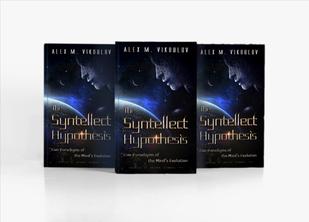 Techno-cultural evolution driven by epigenetic and memetic factors, the collective will of humanity to emulate the most successful achievements of Nature with technology, proceeds now millions of times faster than genetic evolution of our species at an ever-accelerating pace. Through the prism of memetics we can view the ‘Technosphere’ as our extended phenotype on a planetary scale. In turn, the Technosphere supports and amplifies the ‘Noosphere’, epitomized in the omnipresent Internet, as an extender of our perception, our extended mind, a magnificent epigenetic phenomenon. What does that mean to us humans going forward into the Age of Superintelligence?* Read more in my new book "The Syntellect Hypothesis: Five Paradigms of the MInd's Evolution" available on amazon.com, audible.com, from Barnes & Noble, or directly from EcstadelicNET webstore, and get "mind-blown!" -Alex Vikoulov P.S. That was an abridged article from The Syntellect Hypothesis: Five Paradigms of the Mind's Evolution available now on amazon.com, bn.com, audible.com and directly from EcstadelicNET webstore. *The unabridged story is also available at Premium Access section of this website - Sign up for Premium Access Tags: Ralph Waldo Emerson, Over-Soul, human intelligence, Darwinian model of evolution, DNA replication, techno-culture, epigenetic evolution, epigenetics, Nature vs. Nurture, John Locke, human mind, Aristotle, C. H. Waddington, genetic code, fluid intelligence, monozygotic twins, phenotype, neuro-epigenetics, intelligence genes, consciousness, phenomenology, experiential reality, altered states of consciousness, qualia, idealist philosopher, unified field, non-local consciousness, conscious awareness, local consciousness, universal operating system, evolution of the mind, Homo sapiens, collective intelligence, cognitive ecstasy, cogno-ecstasis, flowstate, directed evolution, biological evolution, linguistic evolution, language development, Terence McKenna, shamanism, metaphysics, philosophy, origins of human consciousness, Food of the Gods, Stoned Ape Theory, Linguistic Singularity, linguistic universals, cross-linguistic generalizations, Noam Chomsky, universal grammar, Benjamin Lee Whorf, linguistic relativity, Andrew Newberg, Mark Robert Waldman, Words Can Change Your Brain, proto-writing, Epic of Gilgamesh, Printing Revolution, network effect, Matt Ridley, superminds, Deep Learning, social cognition, swarming algorithms, global village, global smart-home, hive mind, Syntellect ontology, global mind, subjective values, gene editing, reproduction assisted technology, neuro-engineering, mind uploading, creation of artificial life, artificial selection, epigenetic factor, Homo technicus, Artificial Intelligence, multicellularity explosion, artificial superintelligence, quantum cognition, neural network, meme-space, Selfish Gene, Richard Dawkins, meme, human civilization, virtual reality, Bruce Lipton, cultural conditioning, viral marketing, digital shamanism, Social Computing, Gangnam Style, memetic activity, social media, mores, pseudo-axiom, quantum mechanics, critical thinking, free will, digilati, Illuminati, techno-cultural evolution, genetic evolution, Technosphere, extended phenotype, Noosphere’, epigenetic phenomenon. *Image Credit: Shutterstock About the Author: Alex Vikoulov is a Russian-American futurist, evolutionary cyberneticist, philosopher of mind, CEO/Editor-in-Chief of Ecstadelic Media Group, painter, essayist, media commentator, author of "The Syntellect Hypothesis: Five Paradigms of the Mind's Evolution," "The Origins of Us: Evolutionary Emergence and The Omega Point Cosmology," "The Physics of Time: D-Theory of Time & Temporal Mechanics," "The Intelligence Supernova: Essays on Cybernetic Transhumanism, The Simulation Singularity & The Syntellect Emergence," "Theology of Digital Physics: Phenomenal Consciousness, The Cosmic Self & The Pantheistic Interpretation of Our Holographic Reality," "NOOGENESIS: Computational Biology," "TECHNOCULTURE: The Rise of Man." Self-described neo-transcendentalist, cosmist and transhumanist singularitarian. Lives in Burlingame, California (San Francisco Bay Area). More Bio... Author Website: www.alexvikoulov.com e-mail: [email protected]
0 Comments
Leave a Reply. |
Categories
All
Recent Publications The Cybernetic Theory of Mind by Alex M. Vikoulov (2022): eBook Series The Syntellect Hypothesis: Five Paradigms of the Mind's Evolution by Alex M. Vikoulov (2020): eBook Paperback Hardcover Audiobook The Omega Singularity: Universal Mind & The Fractal Multiverse by Alex M. Vikoulov (2022): eBook THEOGENESIS: Transdimensional Propagation & Universal Expansion by Alex M. Vikoulov (2021): eBook The Cybernetic Singularity: The Syntellect Emergence by Alex M. Vikoulov (2021): eBook TECHNOCULTURE: The Rise of Man by Alex M. Vikoulov (2020) eBook NOOGENESIS: Computational Biology by Alex M. Vikoulov (2020): eBook The Ouroboros Code: Reality's Digital Alchemy Self-Simulation Bridging Science and Spirituality by Antonin Tuynman (2019) eBook Paperback The Science and Philosophy of Information by Alex M. Vikoulov (2019): eBook Series Theology of Digital Physics: Phenomenal Consciousness, The Cosmic Self & The Pantheistic Interpretation of Our Holographic Reality by Alex M. Vikoulov (2019) eBook The Intelligence Supernova: Essays on Cybernetic Transhumanism, The Simulation Singularity & The Syntellect Emergence by Alex M. Vikoulov (2019) eBook The Physics of Time: D-Theory of Time & Temporal Mechanics by Alex M. Vikoulov (2019): eBook The Origins of Us: Evolutionary Emergence and The Omega Point Cosmology by Alex M. Vikoulov (2019): eBook More Than An Algorithm: Exploring the gap between natural evolution and digitally computed artificial intelligence by Antonin Tuynman (2019): eBook Our Facebook Pages
A quote on the go"When I woke up one morning I got poetically epiphanized: To us, our dreams at night feel “oh so real” when inside them but they are what they are - dreams against the backdrop of daily reality. Our daily reality is like nightly dreams against the backdrop of the larger reality. This is something we all know deep down to be true... The question then becomes how to "lucidify" this dream of reality?"— Alex M. Vikoulov Public Forums Our Custom GPTs
Alex Vikoulov AGI (Premium*)
Be Part of Our Network! *Subscribe to Premium Access Make a Donation Syndicate Content Write a Paid Review Submit Your Article Submit Your Press Release Submit Your e-News Contact Us
|



